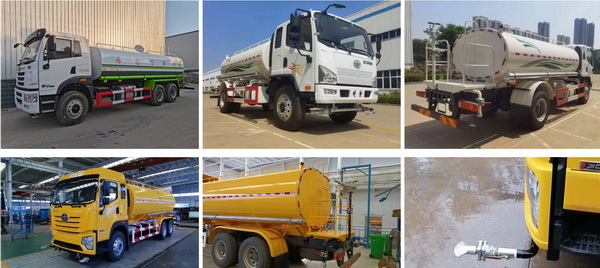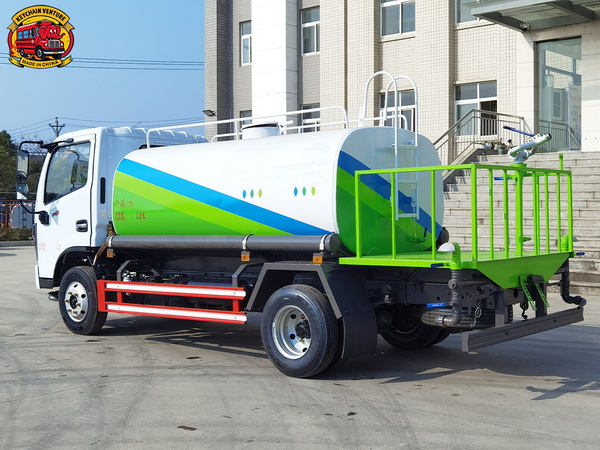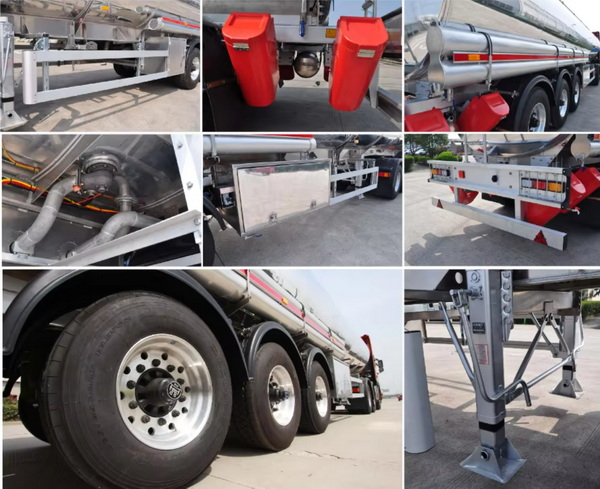Views: 222 Author: Amanda Publish Time: 2025-09-13 Origin: Site








Content Menu
● Understanding Water Trucks and Their Capacity
● Pool Volume and Water Requirements
● Factors Affecting Cost to Fill a Pool with Water Truck
>> Water Truck Capacity and Pricing
>> Water Quality and Additional Services
>> Filling Time and Access Conditions
● Step-by-Step Process of Filling Your Pool with Water Truck
● Advantages of Using a Water Truck for Pool Filling
>> Convenience and Accessibility
>> Avoiding Water Supply Restrictions
>> Cost Savings for Large Pools
>> Environmentally Responsible Sourcing (When Available)
● Potential Challenges and Considerations
>> Permitting and Local Regulations
● Tips for Hiring the Right Water Truck Service
● FAQ
>> 1. How much water can a typical water truck carry?
>> 2. Is using a water truck to fill my pool more expensive than municipal water?
>> 3. How long does it take for a water truck to fill a pool?
>> 4. Do I need a permit to have a water truck deliver water?
>> 5. Can water trucks provide chemically treated water suitable for pools?
Filling a pool with a water truck is a practical and efficient solution, especially for large pools or when local water supply restrictions exist. This article explores the cost factors, benefits, and logistics involved in using a water trucks to fill a swimming pool, providing you with detailed information for planning your pool fill.

A water truck is a specialized vehicle equipped with a large tank designed to transport and deliver water efficiently. These trucks are essential in construction sites, agriculture, firefighting, and emergency water supply scenarios. When it comes to filling swimming pools, water trucks offer a fast, reliable, and convenient way to provide the massive amounts of water needed.
Water trucks vary widely in size and capacity. Most commonly, their tanks hold between 2,000 and 12,000 gallons (7,570 to 45,420 liters) of water. The truck's capacity will determine how many trips are needed to fill your pool and influence the overall cost of your water supply.
Understanding your pool's volume is crucial before ordering water from a water truck. The total volume tells you how many gallons of water are required to fill it completely. Pools come in various shapes—rectangular, oval, round, or freeform—and each requires a different method for volume calculation.
Here are the standard formulas to estimate pool volume in gallons:
- Rectangular Pool Volume = Length (ft) × Width (ft) × Average Depth (ft) × 7.48
- Oval Pool Volume = Length (ft) × Width (ft) × Average Depth (ft) × 5.9
- Round Pool Volume = Diameter (ft) × Diameter (ft) × Average Depth (ft) × 5.9
For example, a rectangular pool measuring 30 feet long, 15 feet wide, and with an average depth of 5 feet would require:
30×15×5×7.48=16,830gallons
Freeform pools are more complex, and you may need a professional's help for an accurate volume measurement or approximate it by dividing the pool into geometric shapes.
When budgeting for a pool fill using a water truck, several factors come into play:
The volume of water directly impacts the cost. Larger pools require more gallons, which may mean multiple tanker deliveries. For very large pools or commercial pools, the number of trips can multiply, raising your overall expense.
Water truck service providers usually charge either by the gallon or by the truckload. Typical rate ranges are $100 to $300 per 1,000 gallons, although prices fluctuate based on region, season, and water availability.
Sometimes flat rates apply if you order a full truckload, especially for the larger trucks. Discuss pricing with your provider beforehand to avoid unexpected charges.
Delivery distance affects the cost due to fuel, labor, and time. Water truck suppliers close to your location will be more cost-effective. Remote or rural areas may incur higher fees. Some companies also charge for site access difficulty, such as narrow roads or lack of turnaround space.
If you require potable water or water specifically treated for pool chemistry, expect added fees. Some suppliers offer filtration, chemical balancing, or water testing as part of the delivery package. Make sure to confirm these details while requesting quotes.
Logistical factors like how quickly you want the pool filled, site accessibility, and connection points can influence cost and planning. For instance, difficult access requiring longer hose setups or pump usage can increase labor costs.
A breakdown of the process helps ensure a smooth experience:
1. Calculate Pool Volume: Use accurate measuring tools or consult experts to determine how many gallons your pool holds.
2. Choose a Water Truck Supplier: Look for licensed and insured companies experienced in pool fills.
3. Request Detailed Quotes: Provide your pool size, location, and any water quality requirements.
4. Schedule Delivery: Coordinate the day and time for the truck's arrival to avoid delays.
5. Prepare Your Pool Site: Ensure accessibility, clear the area near fill points, and check for adequate drainage in case of overflow.
6. Water Truck Delivery: The driver pumps water into your pool through hoses or delivery nozzles, monitoring the fill level.
7. Final Pool Assessment: Visually inspect water level and quality, and test water chemistry once filled.

Water trucks can deliver thousands of gallons in just a few hours, much faster than waiting for municipal water supply via standard taps, which may take days for large pools.
A water truck brings water directly to your pool, eliminating the need for multiple trips to buy water or prolonged water meter usage.
In areas where municipal water is rationed or restricted due to drought conditions, water trucks often source from permitted wells or rainwater harvesting sites, making them a reliable alternative.
While municipal water might be cheaper per gallon, filling a very large pool from the city supply may trigger surcharges or require permits. A water truck bypasses some of those costs and effort.
Some water truck providers emphasize sustainable sourcing, such as recycled water or wells certified for environmental safety. This helps pool owners refill responsibly.
Certain regions require permits to transport or deliver large volumes of water. Check local laws and ask your water truck provider about any restrictions.
Water trucks consume fuel and generate emissions during transport. If environmental sustainability is a priority, ask about green practices or seek providers using eco-friendly trucks.
Water from trucks may not be balanced for pool use. Post-fill water treatment, including chlorine and pH balancing, is often necessary.
Always confirm the source and quality of water delivered. City-supplied or well water is usually safe, but some truck water might need additional filtration.
- Verify licensing, certifications, and insurance.
- Ask for references or reviews from previous pool fill customers.
- Confirm tank size and number of trips upfront.
- Inquire about any hidden fees like setup, waiting time, or traffic delays.
- Schedule delivery during cooler parts of the day to reduce evaporation.
After your pool is filled by a water truck, maintain proper filtration and chemical balance. New water can affect existing pool chemistry and clarity, so regular testing is crucial in the first few days.
Using a water truck to fill your pool is a strategically sound decision when time, volume, or water supply restrictions are factors. It offers a quick, reliable option with transparent cost variables like truck capacity, distance, and water quality requirements. By calculating your pool's water needs accurately and selecting a qualified water truck supplier, you can fill your pool efficiently while managing expenses. Whether for a residential backyard pool or a commercial swimming facility, water trucks provide convenience and flexibility that traditional water supply methods often cannot match.

Most water trucks carry between 2,000 and 12,000 gallons, depending on the size and make of the truck.
It varies based on pool size, location, and water restrictions. For large pools or areas with water limits, water trucks can be more cost-effective and faster.
Filling usually takes a few hours but depends on truck capacity, pool volume, and site access.
Permit requirements differ by jurisdiction. It's best to check with your local authorities or water truck company.
Some water truck services include water treatment options, but chemical balancing after delivery is usually recommended.